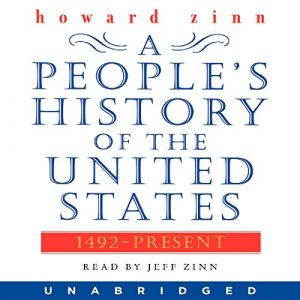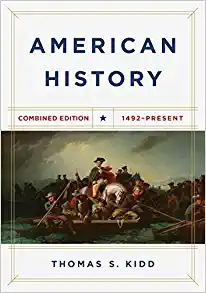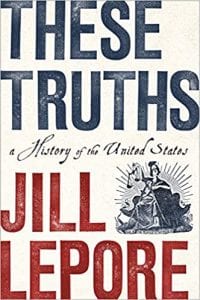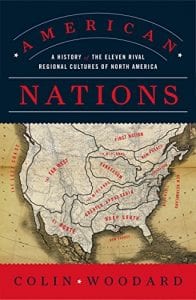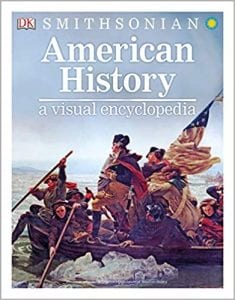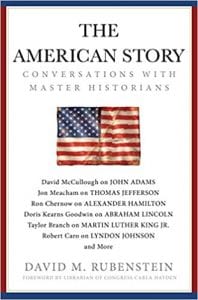The Best American History Book
We looked at the top 7 American History Books and dug through the reviews from 34 of the most popular review sites including and more. The result is a ranking of the best American History Books.
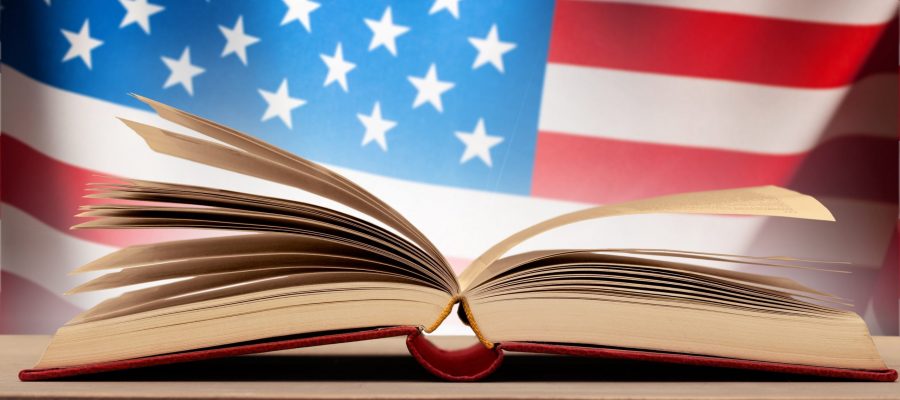
Our Review Process
Don't Waste Your Money is focused on helping you make the best purchasing decision. Our team of experts spends hundreds of hours analyzing, testing, and researching products so you don't have to. Learn more.
Our Picks For The Top American History Books
- 1. Howard Zinn A People’s History of the United States
- 2. Thomas S. Kidd American History, Combined Edition: 1492-Present
- 3. Jill Lepore These Truths: A History Of The United States
- 4. Colin Woodward American Nations: A History of the Eleven Rival Regional Cultures of North America
- 5. DK Smithsonian American History: A Visual Encyclopedia
- 6. David M. Rubenstein The American Story: Conversations With Master Historians
- 7. Scheweikart & Allen A Patriot’s History Of The United States
America's history is filled with people fighting for rights, and this American history book chronicles those stories, among many others. It starts with Columbus's arrival and takes the reader all the way through Clinton's first term. It's been updated with an introduction that discusses the book's 35-year history.
A Unique PerspectiveThis classic tells the story you didn't hear in school, giving the perspectives of Native Americans, factory workers, Black Americans and more.
With this American history book, you get both Volume 1 and Volume 2 of Thomas Kidd’s textbooks. You'll start out with early American encounters and end up at the Gilded Age. The book is laid out in a way that is easy to read. It works just as well for homeschoolers as it does history buffs.
Complete SetThis American history book is filled with stunning photos that bring the country's history to life.
Written by Harvard professor Jill Lepore, this book takes an introspective look at the history of America in an effort in an effort to reflect on where we've been. The chapters are organized in sections by both time and theme to make it easier for readers to absorb the information. This book focuses on the three truths "we hold to be self-evident:"...
An Insightful Look at AmericaThis American history book tells the history of the country in a way intended to be both reflective and insightful.
This book looks at the cultural differences that mark various regions of the U.S., suggesting that America's political history can be traced back to before it even began. It not only helps readers better understand the history of the country, but it can provide some context for the divisions that remain with us today.
Studies America's DivisionsThis American history book suggests that America is divided into 11 distinct regions, each with its unique cultural differences.
Buying Guide
In school, you were handed a history textbook and told to read it. It likely had a condensed history of America, covering wars, important political figures and big events.
For those interested in history, though, the thirst for information continues long after graduation. Even children may find school textbooks inadequate if they’re really interested in learning history. Fortunately, there’s no shortage of history books, especially if you want to study a particular event or era in depth.
But what if you just want a full telling of the history of America? There are books for that, as well. The key is to find one that covers the timeframe you’re interested in studying. Some start with Columbus’s arrival, while others include the history of Native Americans before settlers arrived.
Most American history books will focus on a certain theme. This is what makes each one unique. So before you start looking for a good book, think about what interests you most. Do you want to learn more about the political climate of America throughout history, or do wars and foreign relations interest you more? Are you interested in exploring a particular theme, or would you prefer to simply read the events in chronological order, pulled together with an interesting narrative?
For younger readers, images can be a great way to break up pages of text. Many children’s history books will use compelling photos, charts, maps and other imagery to both illustrate points and keep things interesting. Also look for text that’s engaging, rather than the more serious approach usually seen in textbooks. When children see that learning history can be fun, they’re more likely to continue to want to research as they grow into adults.
Why we recommend these american history books?
Products Considered
Products Analyzed
Expert Reviews Included
User Opinions Analyzed
Our experts reviewed the top 7 American History Books and also dug through the reviews from 34 of the most popular review sites including and more. The result is a ranking of the best of the best American History Books.
DWYM is your trusted roduct review source. Our team reviews thousands of product reviews from the trusted top experts and combines them into one easy-to-understand score. Learn more.
What to Look For
- The structure of a history book is one of the most important aspects. If possible, take a quick look at the table of contents and pay close attention to whether the story is told chronologically or separated by themes. There’s nothing wrong with either approach, but many readers find they prefer one over the other.
- Even the best-written nonfiction book is useless if it isn’t based in fact. Look for books from authors with impressive backgrounds. A renowned historian or professor of history is better than an author with no connection to the field whatsoever. If you can, check how the author conducted research and whether information came from valid sources.
- The publication date on the book comes into play, as well. A history of America that was published 20 years ago won’t just leave out a couple of decades of events. It may be missing the perspective that those two extra decades have brought. Some history books are updated to compensate for this lapse, but make sure the updates make the book as relevant as one published recently.
- Regardless of where you fall on the political spectrum, you may want an unbiased telling of historical events. There are plenty of American history books that sway conservative or liberal, though, if that’s what you prefer. You can often identify them by the themes they promote in the blurb. However, the review section will often include at least a couple of readers who found the book too political on one side or the other, so browsing those can help.
- At one time, history books painted a rosy picture of historical events. But toward the end of the 20th century, documentarians and authors began digging into the reality of events that have happened. You can still find positive, upbeat takes on American history, but you’ll probably notice those are rarer than books that are more upfront and honest.
More to Explore
It may seem hard to believe, but until the mid-1990s, the only way to look up a historical fact was through books, unless you could actually track down someone who could give you a firsthand account. That meant if a student was working on a paper for class, that student often had to log some after-school library hours to research.
There was one big exception to that. In many homes throughout the 1900s, there was a bookshelf stocked with multiple books called encyclopedias. These books were sold by salespeople who would knock on your door and give a sales pitch. Encyclopedia sales remained strong because almost as soon as a family bought a set, the information was outdated. When a child was working on a report or a family member wanted to look up something, that handy set of encyclopedias was available with the information they needed. As with Wikipedia today, though, the encyclopedia wasn’t meant as a be-all-end-all source. It simply served as a great way to get an overview on a topic you were studying.

